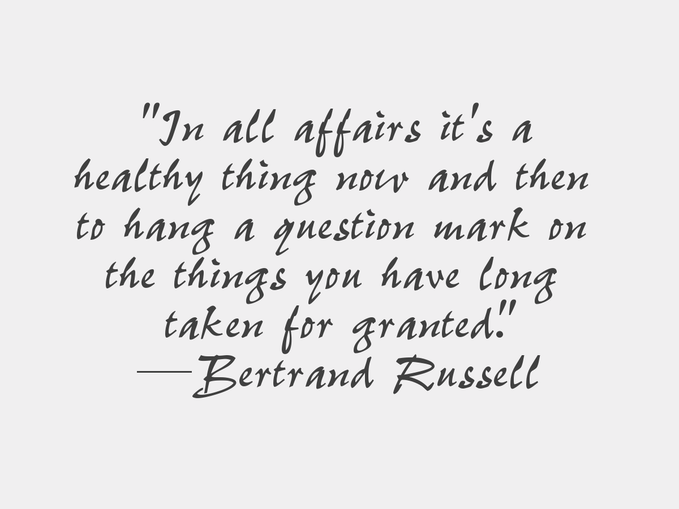|
Thanks for visiting - 2023 marks our 20th anniversary! This site is ad-free and supported by sales of our online courses. If you get value from what we write, click the link at the bottom of the page and read Day 1 of "Your inner narrative" to see if it's right for you...no email required. We all take things for granted, especially things that seem everlasting - for example, our health, our family, and even life in general. Their presence is usually steady and dependable, and because of this they start to blend into the backdrop of our daily lives. They have been there for a long time, so we assume they will always be there. Things seem permanent, so we convince ourselves they are. This is the fallacy of permanence. When we start to believe something will last forever, we set ourselves up for disappointment and suffering because nothing lasts unchanging over time. Impermanence is a fundamental truth. Our relationships, the circumstances and situations we find ourselves in, everything around us - all of it eventually changes. Most of us know this on an intellectual level, so why do we fall victim to the fallacy of permanence time and time again? If we know nothing lasts forever, why do we treat people and things as if they do? And, why would we ever take anything for granted? In part, taking things for granted is a function of habituation. When something is new, it stands out from the "background" and we pay lots of attention to it. When the novelty wears off, however, its hold on our attention weakens and we move on to something else. This is a natural tendency rooted in survival instincts, and usually happens without us realizing it. This doesn’t mean we stop caring about these things - when we take the time to consider them, we realize how valuable our friends and families are. And, we understand and acknowledge how fortunate we are to have them. The problem is, we don’t often pause to appreciate them or pay attention to their presence in our lives. Consider a child who gets a new toy. At first, they are delighted and want to play with it every chance they get. They want to take it everywhere, show it off to others, and even carry it to bed with them! As time passes and other new toys are introduced, however, they play with it less and less until it becomes forgotten in the bottom of the toy box. Forgotten, that is, until a parent decides to pull it out and give it to charity. Then the child cries, argues, and promises that they'll play with it - just please don’t give it away! Their sense of loss seems disproportionately acute considering the toy had been ignored for months; they had taken it for granted. When we don’t pay sufficient attention to something, we underestimate its value and forget to be grateful. We let it sink to the bottom of the toy box, so to speak, until we are threatened with its removal. This is ironic, since the things we are most likely to take for granted are what we value most, such as our livelihoods and loved ones. We fool ourselves into thinking they'll always be there when we need them, so we get blindsided when we lose them. And, once they are gone, we can’t help but think of all the time we could have spent paying attention to them and valuing them. This causes our sense of loss to become magnified through the lens of regret and self-recrimination, pulling us into the past to dwell and ruminate. Or, we begin to worry incessantly about losing something else in the future. We constantly ask ourselves “What if?” instead of enjoying the present moment. The good news is, there is a way out of this trap. Strengthening awareness and grounding yourself in the present moment makes you more likely to see the value in everything, and less likely to take things for granted. You also become more prepared for (and accepting of) change when it happens. Because change will happen. Staying present takes effort - it’s so much easier to cruise on autopilot and let our attention wander! But, by becoming more mindful, we can train ourselves to get better at focusing our attention on the things that really matter right here and now. (If you're looking for help strengthening awareness and staying present, we have a free guide here.) <>
Our minds constantly create stories about what we experience, and we spend most of our time caught up in those stories. This results in the stress and struggles of daily life. "Your inner narrative" (our 15-day online course) can help you break that pattern. Read Day 1 here (no email required). Comments are closed.
|
